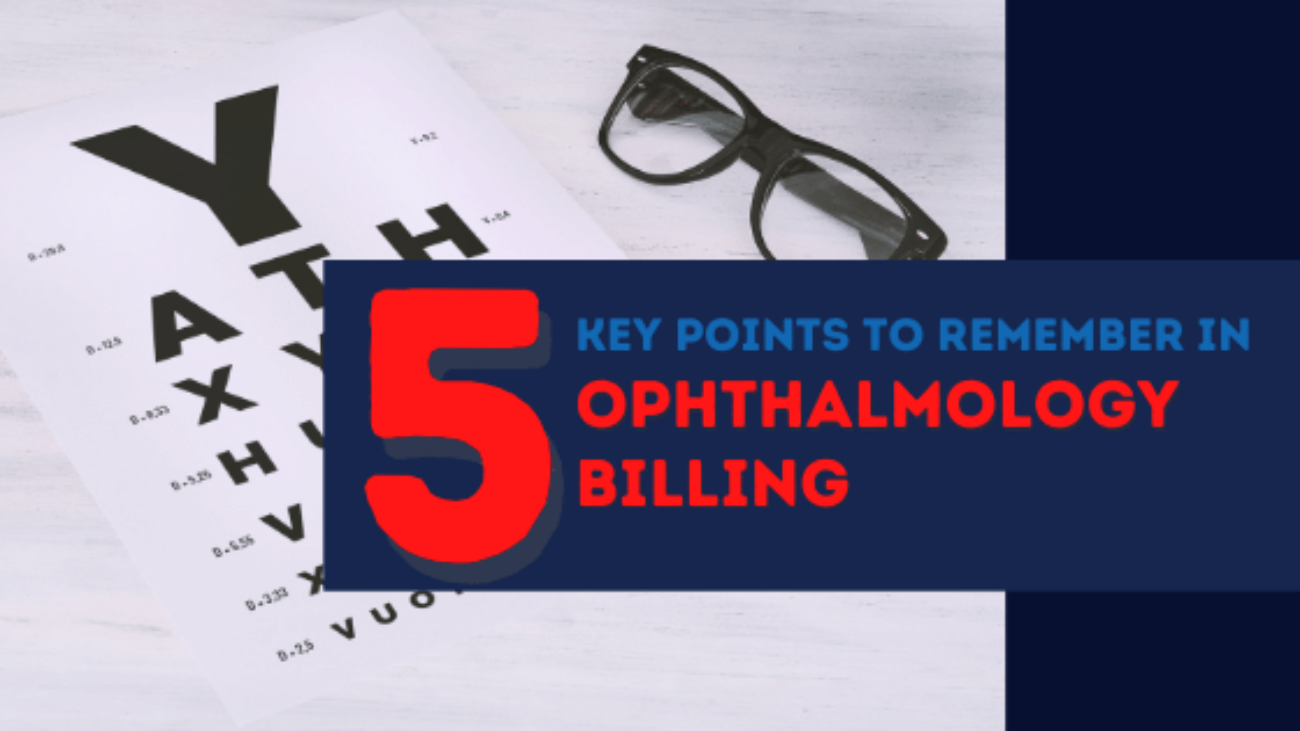Are you sure if you’re billing for PC IOL cataract cases accurately? If not, try considering it as it’s very necessary for Ophthalmology billing procedures! When your facility’s Medicare patient requests a Presbyopia-correcting instead of regular lens, special rules are to be followed to stay in compliance with Medicare guidelines. It becomes a compliance problem if guidelines are not carried or followed accurately. Ensure these cases are perfectly handled by the team or staff at the office.
Accurate Ophthalmology billing:
- Medicare doesn’t reimburse more than the usual. It is the same as regular IOLs for the cases that include the usual payments for the cataract extraction procedure codes 66984, 66982 etc. Healthcare professionals must include and indicate the same on the claim form about the usage of PC IOL in the case.
- Healthcare professionals must bill these special IOLs using V2788 for the PC IOL.
- It’s recommended to append GY, the non-covered modifier or GA modifier to the V-code in order to indicate patient signed Advanced Beneficiary Notice from the waiver.
- While it’s not compulsory to have patient signed Advanced Beneficiary Notice, it’s a better option to avoid misunderstanding with patients on their own portion as PC IOLs will never be covered by Medicare.
- Crysta lens is a PC IOL added to the Medicare list of NTIOL which was billed with code Q1003 ten years back.
Medicare and Reimbursement:
- Ophthalmology billing procedures are unique and when healthcare professionals bill Cataract Extraction Codes with Medicare, they have to understand the importance of inserting IOL in the procedure and also the payment for the Cataract code involves the allowance for payments of regular posterior chamber or anterior chamber IOL.
- Though it’s considered as different type of IOL, the reimbursement is being received for the placement of an IOL. It doesn’t change if you have been paid for an IOL by Medicare.
Compliance issues for Ophthalmology billing:
- If the healthcare providers or surgeons decide to purchase the PC IOL for the case and apparently bring it to ASC for the case, then it becomes a compliance issue.
- The reason is that Medicare does not permit ASC to bill for the Cataract with placement of an IOL along with the -52 Reduced Services. Modifiers also don’t allow any other billing method to convey to that the ASC did not supply the IOL and so, it will not be reimbursed for the IOL supply.
- As there aren’t any provisions to allow ASC for breaking the implant portion of the procedure from the Cataract extraction, Medicare needs ASC to always purchase IOL for all these cataract cases.
- It becomes an invalid or false claim for Ophthalmology billing as Medicare doesn’t allow ASC to submit cataract extraction claims for which healthcare professionals are being reimbursed for the same IOL when ASC didn’t purchase or supply the IOL.
- Medicare also doesn’t support ASC payments for IOLs to healthcare professionals, also if IOL is purchased by the practitioners in like these situations for ophthalmology billing.
- IOL should be purchased and supplied by ASC facility for these cases.
- Beyond that in ophthalmology billing, the charges for the use of PC IOLs become another compliance issue because the charges must be according to the Medicare directions for these cases.
- Overcharging the patients for these lenses are strictly condemned and can also be a compliance issue. Healthcare professionals must be aware of compliance issues due to overcharging patients for PC lenses.
- As healthcare professionals are allowed to bring many implants for other different cases, it might seem right to follow the same for the cataract extraction procedures PC IOLs. Well, it needs to be handled in a different way due to bundled payments for IOL in cataract extraction CPT codes.
New Technology Lenses:
- Generally, Medicare won’t allow payments for IOLs as a supply that’s billed separately in the claim form. It’s actually included in ASC facility fee reimbursed for the cataract extraction procedures CPT codes.
- As it’s well known that facility will be charging parents for the difference, Medicare advises strongly to have Advanced Beneficiary Notice signed by patients.
- It can also be a rare circumstance to use these special lenses. New technology IOLs should actually reimburse to maximum by Medicare when properly and perfectly billed.
- Better to always review the State’s Medicare coverage and guidelines and check with insurance companies if regular IOL lenses for patients apart from Medicare are possible.
What are the difficult cataracts in Ophthalmology billing procedures?
- CPT came out with different solution twenty years back. It came out with new procedure code for differentiating the usual cataract procedures from patients with special problems.
- These problems are the ones which make the procedure stricter and difficult, taking a huge risk by involving surgeons with unusual techniques. It was important to use the code 66982 to bill difficult procedures.
- The complex extraction procedures involve devices for unusual techniques, those are:
- Iris Expansion Device
- Pupil Stretcher
- Use of a Capsular Ring in the procedure
- Use of Dye in the procedure
- Suture Support for the IOL or
- Primary Posterior Capsulorhexis
- The patient population likely have “Difficult” Cataracts usually includes:
- Pediatric patients (under age 8)
- Performed on patients in the Amblyogenic Developmental Stage
- Patients with weakened or absent lens support structures, usually resulting from:
- Glaucoma (code section 365)
- Small pupils (code 379.40)
- Subluxated lens
- Pseudoexfoliation
- Trauma
- Marfan Syndrome
- Uveitis
- Male patients taking Flomax
Hope you got the information on Ophthalmology billing procedures. For more suggestions, please comment below, we will definitely consider them if relevant. For more queries and updates on healthcare, please subscribe to our blog.
5 Key points to remember in Ophthalmology Billing Procedures




